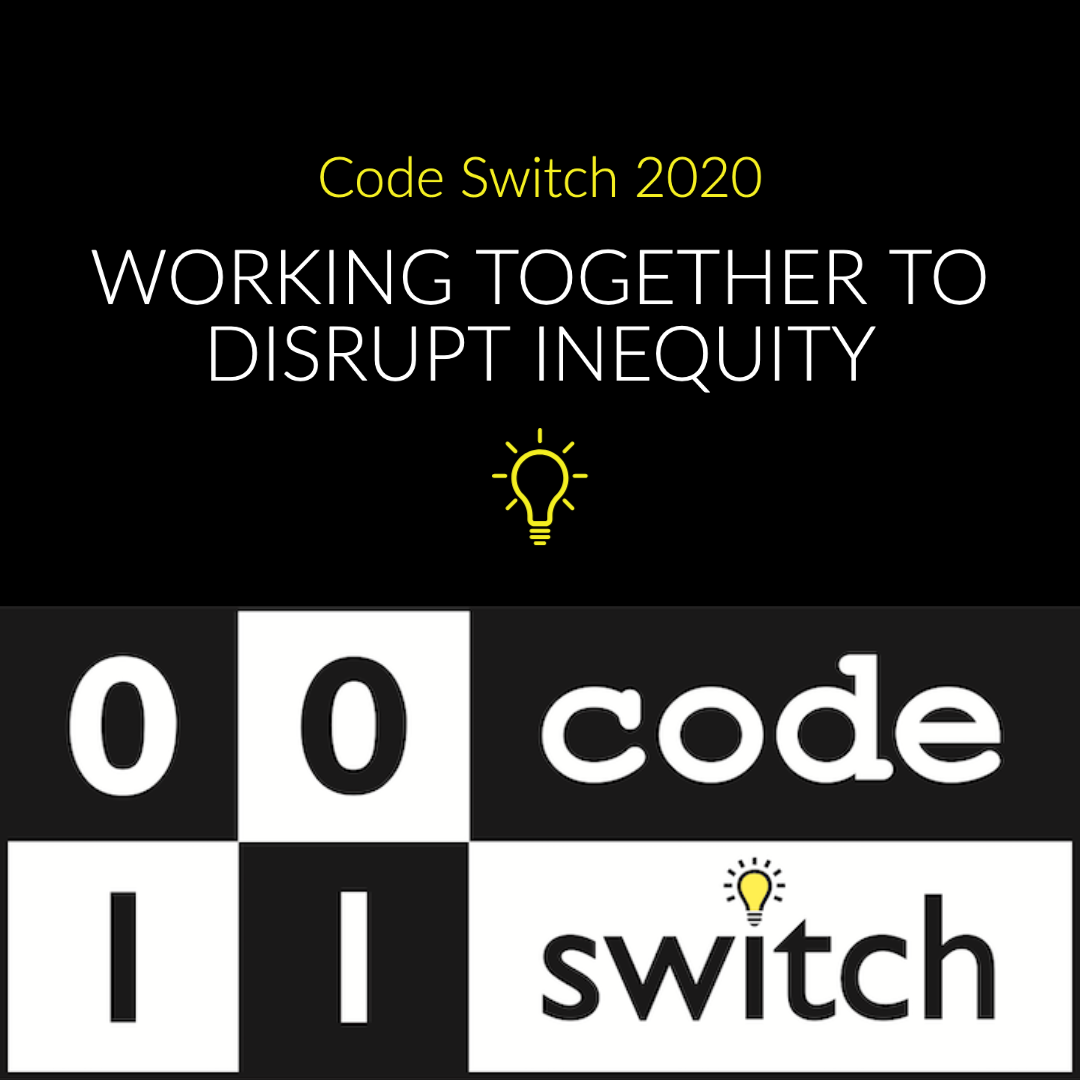Code Switch is back — now in its fifth year as a civic hackathon where community members co-create solutions that disrupt inequity. Though we’re fully virtual this year, the mission of Code Switch is the same: using data and technology to co-create solutions that will lead to a higher quality of life for all Minnesotans.
Our virtual hackathon kicked off on September 12, the National Day of Civic Hacking. Participants have about a month to work on projects in teams before our final celebration and sharing of projects in late October. Projects focus on the areas of Lifelong Learning, Economic Justice and Inclusion, and Community First Public Safety.
The virtual kickoff included a welcome from Saint Paul Mayor Melvin Carter, who spoke about the importance of creativity and getting beyond the status quo during 2020’s unprecedented challenges. As he put it, “Why are you doing things in a different way? To ask that in 2020 is, I think, comical.”
The mayor also spoke about decisions to make the community more equitable. “Equity is what happens when we intentionally dismantle racism, when we intentionally dismantle disparities,” he said. “Equity is about ownership, it’s about decision-making power, and it’s about participation in an economy.”
After hearing from the mayor, Code Switch participants shared project ideas, including some that had been submitted ahead of time by community partners. The kickoff and project ideas were hosted on DemocracyLab, a platform that supports open source tech for good projects.
Project teams formed and worked for the rest of the kickoff event on filling out the Civic Tech Canvas, a tool created by the Open Austin group that helps people launch and think through civic tech projects.
Now, the teams are working on bringing their projects to life, with ongoing opportunities to connect. If you missed the kickoff but still want to participate, you can join the Open Twin Cities Slack community to find a project team! You can also join weekly virtual meetups on Thursday evenings for the next month.
Learn more about this year’s project ideas, and stay tuned for results from this year’s Code Switch:
Policing Data Analysis / Data Storytelling
Data analysis on local policing practices to support conversations about the future of public safety in our communities.
Open Twin Cities Slack channel: #policing-data
Twin Cities Talk: Conversations on Policing and Policy
Use digital tools to invite more people into the conversation on policing and community safety, with the goal of learning and building consensus.
Open Twin Cities Slack channel: #tc-talk
Renters Resources
Empower Twin Cities renters by sharing and demystifying information about property owners and their histories.
Open Twin Cities Slack channel: #renters_resources
Twin Cities Mutual Aid Project
Support this mutual aid mapping project — created during the uprisings following the murder of George Floyd — by continuing to improve its information and accessibility.
Open Twin Cities Slack channel: #tc-aid-general
Info Resource Pop-Ups
Create interactive booths in public spaces that allow people to quickly look up nearby resources for food, shelter, clothing, and personal protective equipment.
Open Twin Cities Slack channel: #info-resource-popups
Minnesota Academy of Science User Experience Review
Analyze the user experience of the Minnesota Academy of Science’s STEM resource pages, which are targeted for K-12 students and parents, educators, STEM professionals, and the general public.
Open Twin Cities Slack channel: #stem-ux-review
Mobile Map for Downtown St. Paul
Create an interactive, dynamic map to help community members navigate the skyways and downtown resources and attractions.
Open Twin Cities Slack channel: #stp-mobile-map

